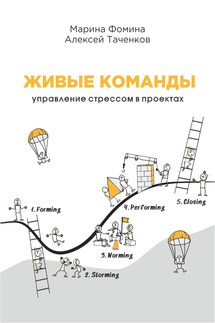Staying Strong - страница 24
• Set your watch five minutes fast – but only for important meetings. That way, you'll always arrive on time (even if it's just in your own mind).
• Create a "procrastination playlist" and blast it whenever you're feeling the urge to put things off. Bonus points if you dance around your living room while doing so.
• Delegate tasks to your pets. They might not be able to do them well, but at least you'll have a good laugh while watching them try.
• Schedule in "nap time" as a non-negotiable meeting on your calendar. After all, who can argue with the need for a mid-afternoon siesta?
• Hire a personal timekeeper to follow you around and remind you when it's time to switch tasks. They can also provide motivational speeches and encouraging words.
• Create a life-sized flow chart for all of your daily tasks and decisions. You'll never get lost again!
• Use a high-tech gadget to zap your brain into hyper-productivity mode. Just be careful not to turn yourself into a robot.
• Write all your tasks on balloons and juggle them to prioritize. Just make sure to avoid sharp objects.
• Hire a professional time traveler to go back in time and give you more hours in the day. It's expensive, but worth it.
• Set up a complex Rube Goldberg machine that triggers a loud alarm when it's time to move on to the next task. It's the most fun you'll ever have being productive.
Laughter is the best medicine – even for managing your time effectively!
Engage in hobbies or activities you enjoy: Participating in activities you enjoy can help reduce stress levels and promote a sense of well-being and happiness.
Partaking in leisure activities or hobbies that bring you joy is an effective way to reduce stress and to improve your overall well-being. When you're doing something you love, it's easier to forget about the stressors of daily life and focus on the present moment.
Some examples of hobbies and activities that can help reduce stress include:
• Reading: Getting lost in a good book can be a great way to escape the stresses of daily life and improve your mood.
Reading can be a hobby because it involves actively engaging with a piece of written work, whether it is a book, article, or other form of written content. Reading can provide a form of escapism or entertainment, allowing the reader to immerse themselves in different worlds and perspectives. Additionally, reading can provide a form of mental stimulation and cognitive exercise, improving vocabulary, critical thinking, and communication skills. Many people enjoy reading as a way to relax and unwind, while others enjoy the challenge of reading more complex or academic material. Some people may also enjoy discussing or sharing their thoughts on what they have read with others, making reading a social activity as well.
You can start reading by choosing a book or genre that interests you. You can browse bookstores or libraries to find books that catch your eye or ask friends and family for recommendations. Once you have a book, set aside some time each day to read, whether it's during your commute, before bed, or during breaks at work. You can also join a book club or online reading community to connect with others who share your interests and discuss books. Remember to choose books that you enjoy and that bring you pleasure, whether it's fiction, non-fiction, or something in between.






